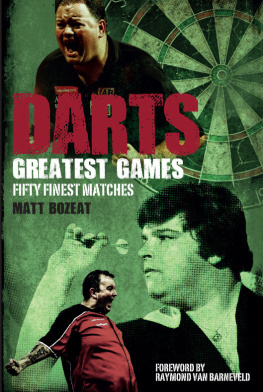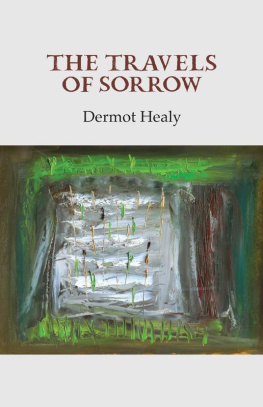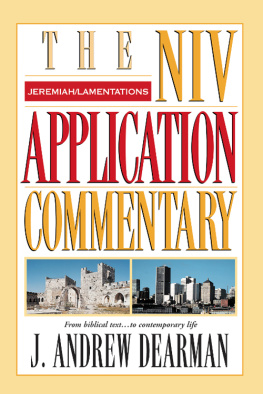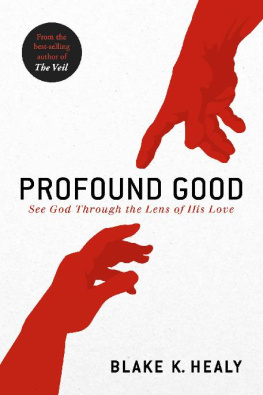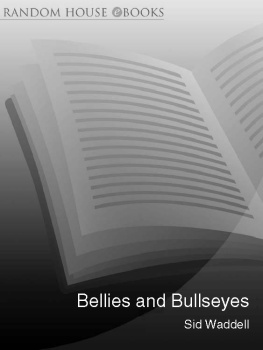Jeremiah Healy - Blunt Darts
Here you can read online Jeremiah Healy - Blunt Darts full text of the book (entire story) in english for free. Download pdf and epub, get meaning, cover and reviews about this ebook. genre: Detective and thriller. Description of the work, (preface) as well as reviews are available. Best literature library LitArk.com created for fans of good reading and offers a wide selection of genres:
Romance novel
Science fiction
Adventure
Detective
Science
History
Home and family
Prose
Art
Politics
Computer
Non-fiction
Religion
Business
Children
Humor
Choose a favorite category and find really read worthwhile books. Enjoy immersion in the world of imagination, feel the emotions of the characters or learn something new for yourself, make an fascinating discovery.

- Book:Blunt Darts
- Author:
- Genre:
- Rating:4 / 5
- Favourites:Add to favourites
- Your mark:
- 80
- 1
- 2
- 3
- 4
- 5
Blunt Darts: summary, description and annotation
We offer to read an annotation, description, summary or preface (depends on what the author of the book "Blunt Darts" wrote himself). If you haven't found the necessary information about the book — write in the comments, we will try to find it.
Blunt Darts — read online for free the complete book (whole text) full work
Below is the text of the book, divided by pages. System saving the place of the last page read, allows you to conveniently read the book "Blunt Darts" online for free, without having to search again every time where you left off. Put a bookmark, and you can go to the page where you finished reading at any time.
Font size:
Interval:
Bookmark:
Jeremiah Healy
Blunt Darts
FIRST
"Name?"
"Cuddy, John Francis."
"Address?"
"74 Charles Street."
"In Boston?"
"In Boston."
"Social Security number?"
"040-93-707l."
"Date of birth?"
I told her.
She looked up at me, squeezed out a smile. "You look younger."
"It's a mark of my immaturity," I said. She made a sour face and returned to the form.
"Occupation?"
"Investigator."
"Previous employer?"
"Empire Insurance Company? I wondered whether Empire had to fill out a form that referred to me as "Previous Employee."
"Reason for leaving previous employment?"
"I have a letter." I took the letter from my inside coat pocket and handed it to her. Opening it and reading it slowed her down. I looked around the big, clattering room at the thirty or so other metal desks.
Each had a woman filling out a form and an applicant answering the same questions. Most of the applicants were men. I wondered why we applicants couldn't fill out at least the first few lines by ourselves.
The man seated at the desk next to me sneezed.
Brittlely old and black, he looked as though he should have been applying for Social Security instead of unemployment. He wiped his nose with a clean handkerchief that had a hole in one corner. When he was finished he folded it so that the hole didn't show.
"Mr. Cuddy, if you'll pay attention to me, we'll finish this procedure much more quickly."
I turned my head to face her again. "That's all right," I said. "I've got time."
She fixed me with the sour look again and tapped her index finger on the paper before her. "This letter from your previous employer is beautifully drafted, Mr. Cuddy, probably by a company lawyer. It nicely provides every fact the regulations require. Accordingly, I have no choice but to recommend you for benefits. I must say, however, that seeing a man of your obvious abilities here instead of out in the world earning his way makes me sick."
"I didn't think you were looking too well. Would you like me to complete the rest of the form myself?"
"No!" she snapped. I thought I heard the man next to me stifle a chuckle. She and I operated as a much more efficient team after that.
"Education?"
"High School, then Holy Cross. One year of night law school."
"Military service?"
"Military Police, discharged a captain in nineteen-sixty-eight."
"Employer prior to Empire Insurance Company?"
"Just the army."
She looked up at me again. "Do you mean you worked for Empire since nineteen-sixty-eight?"
"Since nineteen-sixty-nine. I traveled around the country for a while after the service."
She shook her head, and we completed the rest of the form. I signed it and got a brochure explaining my benefits and rights. I also received a little chit that entitled me to stand in a slow-moving line ten or twelve people deep in front of a window like a bank teller's.
***I had to hand it to Empire. They really knew how to deal with someone like me. After nearly eight years with them, I became head of claims investigation in Boston. It meant my own office, with a window. Beth and I were just this side of ecstasy. We'd married during my first year with Empire and had always lived in apartments in Back Bay, a quiet part of the city within walking distance of the office. With the promotion, we decided we could finally plunge for a three-bedroom condominium there. We moved in during the hottest week in July. Four months later, the doctor told us what Beth had inside her head.
The insurance covered eighty percent of the medical expenses, and a second mortgage on the condo covered most of the rest for the first nine months. I would have sold the place, but it was in both our names, and Beth refused to give it up until the beginning of the last month, when she finally admitted to herself (but never once to me) that she wouldn't be coming home. I sandwiched selling the place between trips to the office and the hospital. I turned most of our furniture over to an auctioneer and moved the rest into a small one-bedroom apartment on Charles Street at the foot of Beacon Hill.
Three weeks later, Joe Mirelli, the priest who'd grown up with us in South Boston and married us there, helped me ease Beth into a small piece of ground on a gentle slope overlooking the harbor.
Two months to the day after Beth's funeral, the head of Boston claims walked into my office. I had my window open a crack, and I could hear Christmas carols carrying from some store's outside stereo speakers. He handed me an investigation report and told me to sign it. I read the report, which substantiated a five-figure jewel-theft claim from an affluent bedroom community just west of Boston, and looked up at him. "This may win this year's award for best short fiction, but I'm not going to sign it."
"Sign it."
"No."
"John, please-just sign it."
"Phil, nobody from this office ever investigated this claim."
"John, I've been told to tell you to sign it."
"Phil, you've also just been told that I'm not going to."
Phil took the report back and left my office.
The next day the head of claims investigation and the head of the claims division, both from home office, were outside my office with Phil when I arrived. It was a cold December day, but at 8:15 A.M., Phil already had patches of sweat in the armpits of his button-down shirt.
"Sign it," said Head of Claims.
"The investigation was never done," I replied.
"It was done by an independent outfit without your knowledge," said Head of Investigation.
"Fine. Let me talk to him, her, or it."
"That's not feasible," said Head of Claims.
"Then let him, her, or it sign the report."
Phil picked up the report and shook it at me.
"Christ, John, will you please sign the goddamned thing?" He was squealing.
"No."
"Well," said Head of Claims as he plucked the report from Phil's hand and tamped it into his inside pocket, "that's certainly clear enough." Head of Claims walked out the door followed by Phil, who said, "'Bye, John."
"'Bye, John," mimicked Head of Investigation as he followed them out and closed the door.
Fifteen minutes later I called Tommy Kramer. He was a college classmate of mine and the best lawyer I knew who had no connection with the company. I explained what had happened. He said to wait and see what developed. I didn't have long to wait.
Two days later, Head of Boston Office called me into his office. His window was closed, but I imagine we were too high up to hear Christmas carols anyway. He was in his early sixties and Ivy League. He came from a Pilgrim-tracing North Shore family, though by the time his generation arrived, the bloodline had run a bit thin. After a few minutes of uncomfortable small talk, he allowed as how my senior investigator, Mullen, was due for a promotion. He also allowed as how I'd gone about as far as I could with the company and should consider seeking "lateral-level" employment elsewhere, toward which I'd receive only the highest references. He had never heard of any five-figure claim or investigation report. When he added, jokingly, that I could, of course, be terminated in such a way as to qualify for unemployment compensation, I took him up on it. He was shocked and tried to talk me out of it, but I insisted. He reluctantly agreed to get the inhouse attorney started on it.
When I got back to my office, I called Tommy Kramer again. I told him what I'd just done, and he advised me that if I stuck to my present course, I could kiss goodbye to any lawsuit against Empire for wrongful termination.
I said that was fine with me, and asked him to send me a bill, which, knowing about Beth, he never did. Aside from his kindness, I had a lousy Christmas.
Font size:
Interval:
Bookmark:
Similar books «Blunt Darts»
Look at similar books to Blunt Darts. We have selected literature similar in name and meaning in the hope of providing readers with more options to find new, interesting, not yet read works.
Discussion, reviews of the book Blunt Darts and just readers' own opinions. Leave your comments, write what you think about the work, its meaning or the main characters. Specify what exactly you liked and what you didn't like, and why you think so.



